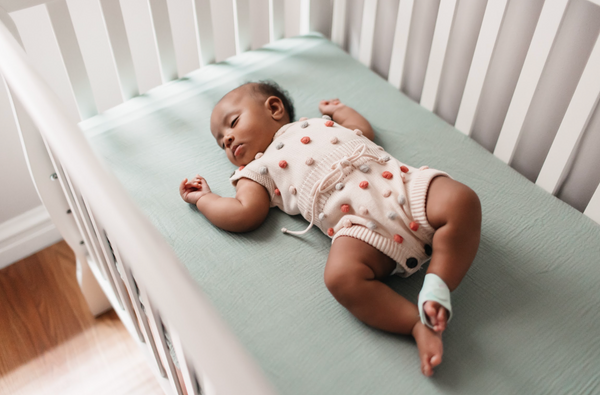Navigating Bub’s Sleep Schedule During Daylight Saving Time

You might think that since daylight saving time is simply a one-hour time change, your bub will be able to adjust quickly. Unfortunately, it isn't always so straightforward. When it comes to daylight saving and your bub's sleep, even the tiniest time adjustments can throw their sleep schedule off, making them irritable and frustrated when it's time to go to bed.
Curious about how to adjust your bub's sleep for daylight saving time? It all boils down to anticipating the time change and planning ahead of time. Continue reading to learn more about navigating daylight saving with your bub.
Why Does the Time Change Affect Bub?
Bubs like to stick to their routines. They're also extremely attuned to their circadian rhythm, or internal clock. As a result, bubs will stick to their habits and routines no matter what time of day it is. A bub that typically wakes up at 8 a.m., for example, will continue to wake up at this time regardless of whether the time has been pushed an hour ahead or or an hour back. Until their internal clock is programmed for the switch, your bub won’t be able to adjust to the new time. This reinforces the need for you to assist your bub with the time change.
It's also important to remember that every bub is unique. When the clocks change, one bub may wake up even earlier than usual. Another bub may wake up later. Some bubs will take longer to adjust to a time change, while others may adjust more quickly.
How Long Does it Take Bub to Adjust?
As previously stated, every bub is unique. However, even with that said, adjusting to the time change is a process. Even if your bub adjusts more intuitively, it is unlikely that he or she will adjust overnight. The majority of bubs will adjust to the new time change within a week or two.
Strategies for Adjusting Baby Sleep
Prepare for the time change
Start putting your bub to bed ten minutes earlier every other day two weeks before daylight saving begins to help them adjust. You can also begin the transition one week before daylight saving time and finish the week after, making the adjustment period last a full two weeks. This allows your bub to gradually adjust to the change and allows their circadian rhythm to adjust as well.
Keep the same intervals throughout the day
The timings of your bub's daily routine should be adjusted to account for the hour time difference and the change in your bub's bedtime. Begin dinner a little earlier as well, so your bub can maintain his or her normal sleep-wake cycle. Nap time should be modified in the same way that bedtime is, by increasing it by 10 minutes every other day.
Daylight Saving Tips for Bubs
Aside from adjusting their bedtimes and meal times, there are other strategies you can use to help your bub adjust to the new time. Here are some of the best tips for assisting your bub in adjusting to daylight saving time.
Keep Bub's room dark
Your bub will not understand why it is lighter outside than usual. And it’s not as simple as explaining it to them. Keep your bub's room dark to "fool" their internal body clock into thinking it's darker than it really is. No matter how bright it is outside, blackout curtains can be an effective way of blocking out light.
Stay the course
Even if you make small changes over a few days, your bub may fight you at their new mealtimes or be especially frustrated and irritable when it's time to sleep. Despite the fact that your patience may be wearing thin, stick to what the clock (and your adjustment plan) says. This means you should encourage your bub to eat or sleep at the times you specify, even if they’re grumpy about it. Maintaining a routine will assist them in adjusting to the time change.